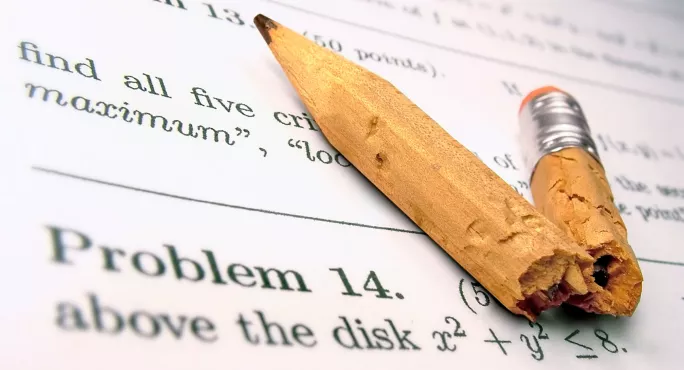There is a “significant gap” in maths anxiety between disadvantaged pupils and their peers, research has found.
More than one in four (26 per cent of) Year 6 pupils from lower socioeconomic status (SES) backgrounds reported feeling nervous when they come across a new concept in maths, a survey by charity Axiom Maths found.
This is compared with just 7 per cent of pupils from higher SES backgrounds.
Pupils with Sats scores above 100 were less likely to feel nervous about new bits of maths - but only if they were from a more affluent background.
Axiom Maths previously found half of disadvantaged primary pupils who achieve top Sats marks in maths see a significant decline in attainment by the time they take their GCSEs. For many of these pupils, their interest and attainment in maths took a significant hit as they transitioned to Year 7.
Disadvantage gaps in both motivation and coverage reported
The charity has since further surveyed Year 6 pupils to explore the role of disadvantage in losing interest in maths at secondary transition.
Pupils from more affluent backgrounds were also more likely to say they feel motivated and interested when coming across newer areas of maths than their less well-off peers.
There also “appears to be a gap in curriculum coverage” between pupils from higher and lower SES backgrounds, Axiom Maths has said.
Pupils from less affluent backgrounds were more than twice as likely to say they had not covered algebra in their maths lessons.
Axiom Maths found that pupils reported their favourite area of maths was problem solving - but discovered a gap in how often pupils report doing this. Pupils from more disadvantaged backgrounds were as likely to report they spend their maths time doing worksheets as they were to do problem solving.
However, more affluent pupils were more likely to report they do problem solving in maths than worksheets.
Opportunity to ‘reset expectations’ during transition
Axiom Maths said schools have an opportunity to reset pupils’ expectations of school during the autumn term as they transition to secondary.
In a blog published today, the charity wrote: “We can flood pupils with positive experiences and a positive culture. We can give them rich classroom experiences where they’re exposed to joyful maths. We can create environments where curiosity trumps nerves. We can start closing the disadvantage gap before it opens further.”
Furthermore, pupils from lower SES backgrounds were less likely to say mathematicians will “go far in life” (24 per cent), compared with their more affluent peers (36 per cent).
Pupils from more well-off backgrounds were also more likely to report that school makes them “a better person” and that their friends get involved with activities.
Pepe Di’Iasio, general secretary of the Association of School and College Leaders, said a lack of funding and specialist teachers in subjects such as maths, constrains schools’ ability to support the most disadvantaged pupils. He added it is “very disappointing” that funding for the National Tutoring Programme was cut to help schools address this.
“The curriculum review offers an opportunity for positive change, and focusing more on how numeracy is used in the outside world will be beneficial, but it is the government’s Child Poverty Strategy that needs to make the biggest difference in this area,” Mr Di’Iasio said.
“We simply have to do more to close the disadvantage gap and provide better support for children in poverty.”
Axiom Maths said it used a representative sample of around 520 pupils. It classified pupils’ socioeconomic status using social grades from the Office for National Statistics. All pupils compared had a Sats score above 100.
For the latest education news and analysis delivered every weekday morning, sign up for the Tes Daily newsletter




